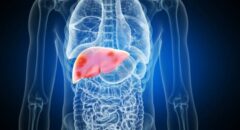
According to the U.S. Department of Health and Human Services, chronic liver disease has been the ninth leading cause of death for Black Americans between the ages of 45 and 64 years old since 2020. With that in mind, you need to know how liver disease affects Black people and how to keep yourself healthy.
What You Need To Know
Despite there being progress in how liver disease is handled over the years, not much has changed for Black Americans. Studies show that there are significant disparities in the care Black people experience when compared to other ethnicities.
From the outset, Black people are less likely to be screened or assessed for liver disease whether or not they have symptoms of the illness. This often results in Black Americans being diagnosed at a later stage and can limit their treatment options.
Even at the point of diagnosis, studies show that not all Black people get the treatment they need because their doctors don’t discuss all of their options. If left untreated, it’s possible for liver damage to progress to the point of scarring or cirrhosis. The only treatment for this level of damage is a transplant.
However, many Black Americans don’t get a referral to a transplant center on time. Researchers estimate that the lack of referral may contribute to the high death rates from liver disease.
RELATED: Liver Lessons: 15 Important Questions To Answer For A Healthier You
The Symptoms Of Liver Disease
While it’s possible to have liver disease without any symptoms, you may notice a few things. Some of the issues include abdominal pain, swelling in your legs or ankles, chronic fatigue, a yellowish color in your eyes and skin, dark-colored urine, pale stools, persistent nausea, and decreased appetite. Some people may also notice that they bruise more easily.
What To Ask Your Doctor
Given how difficult it can be for Black Americans to get the care they need for liver disease, you’ll need to be pre-emptive. This means asking your doctor specific questions about your health.
A good place to start is to ask your doctor what your risks are for developing liver disease. Some risk factors include having a family history of liver disease, drinking alcohol heavily, having tattoos or piercings, and possible exposure to any of the hepatitis viruses.
Following that, you should ask if there are any tests you need to take and how regularly. Even if your test results are negative, ask your doctor what the next steps will be. Will you need to get tested again or do different tests? Is there anything you need to change about your lifestyle to reduce your risk?
The questions will be different if the results are positive. Since liver disease is usually managed by a specialist, you should ask if you need a referral to a hepatologist.
RELATED: What You Should Know About Liver Damage — And Its Possible Causes
At that point, you’ll need to know the extent of your liver damage and what your treatment options are. Sometimes, liver disease can be repaired if the damage is mild. If you have scarring, though, the options will be different. That’s when you need to ask your doctor about what you need to do to live well with chronic liver disease.
Of course, this isn’t an exhaustive list and you’ll likely have even more questions if you’re diagnosed with liver disease. What’s important is that you start the conversation and open the door to effective communication with your doctor.
Many Black Americans are at risk of developing liver disease but won’t get assessed in time to get an early diagnosis. A diagnosis is an integral part of starting treatment as soon as possible so the illness doesn’t progress. The best thing you can do is to be an advocate for your health and talk to your doctor.








